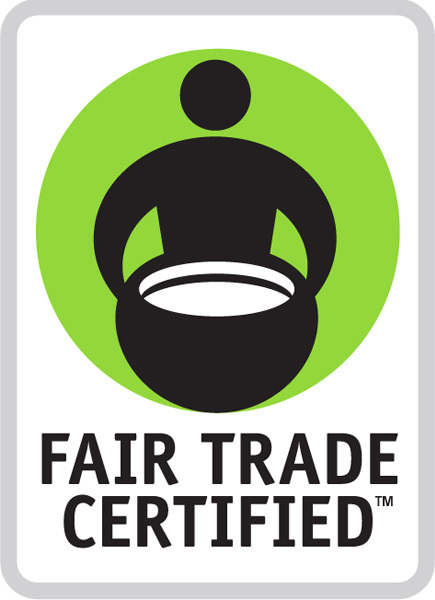Lutheran World Relief and Fair Trade USA Collaborate to Strengthen Cooperatives in Indonesia
Lutheran World Relief and Fair Trade USA Collaborate to Strengthen Cooperatives…
Behind the items we consume every day are farmers struggling to survive and support their families. Living in poor, rural regions of the world where paved roads and Internet access are rare, small-scale farmers who produce these items have little ability to negotiate fair prices for their products.
In conventional trade, middlemen take advantage of the small-scale farmer’s weak negotiating power and limited access to market, and pay unfairly low prices that barely cover the cost of farming. This leaves no money for nutritious food, medicine, clothes or even education for their children.
That’s why Lutheran World Relief (LWR) has always been a strong supporter of Fair Trade, which empowers farmers and workers to fight poverty, improve the lives of their families and communities, and protect the land on which they work. It’s also why LWR is collaborating with Fair Trade USA to strengthen Fair Trade coffee cooperatives by helping them improve quality, increase productivity, improve access to capital, and become stronger business partners.
A Strong Foundation
At the core of this collaboration is a shared commitment to cooperatives and small-scale farmers everywhere, and the belief that Fair Trade is a key component for making a greater dent in global poverty. To date, Fair Trade USA and its partners have helped farmers and workers earn more than $225 million in additional income, and have enabled projects in more than 70 countries worldwide that improve business capacity, community infrastructure, social investment and environmental protection.
LWR, through its Fair Trade programs, has sold more than 1,300 tons of Fair Trade coffee, tea and cocoa; more than $5 million worth of handcrafts; and $1.5 million worth of Fair Trade chocolate to Lutherans in the United States – sales that help empower farmers and artisans around the world. LWR also works directly with farmer cooperatives, assisting them in quality improvement and obtaining Fair Trade certification.
In Uganda, for example, LWR has helped more than 6,000 coffee farmers increase their production of Fair Trade coffee by almost 75% in just three years, significantly boosting family incomes. In Nicaragua, LWR has helped more than 1,760 farmers sell more than $19 million worth of coffee and cocoa over the last five years and created more than 6,000 permanent jobs.
Collaborating for Greater Impact
Building on these successes, LWR and Fair Trade USA are now working together to help existing Fair Trade cooperatives become stronger and more competitive in the international marketplace.
This opportunity for collaboration came from an existing project between Progreso and Fair Trade USA, with generous funding from the Rabobank Foundation. The organizations joined forces earlier this year to partner with eight coffee cooperatives in Aceh, a mountainous region on the island of Sumatra. The coffee here is wonderful, yet due to insufficient business training and limited access to market, these farmers are still struggling to make ends meet. To level the playing field, this program provides:
- Training on best practices for contract negotiation, earning buyer confidence, and professional communication skills
- Cupper training for cooperative staff and members
- Financial Management training and installation of accounting software
- Fair Trade 101 training (teaching the basics of Fair Trade certification and compliance)
- Price Risk Management and Business Management trainings
Throughout the course of the project, LWR will lend support in monitoring and evaluation, end-line assessment, consultant management, and logistical support.
Miga Mayasari, the accountant for Gayo Mandiri Cooperative, says she feels much more confident about their upcoming Fair Trade audit after the financial management and software training. “It was a good training,” she recalled. “The trainer [first] came to our office for two days to assist us in improving our financial management [practices]; we corrected a lot of errors. It then followed with financial software training. . . Previously we input the data manually; now, with the software, we can minimize the errors while inputting the financial data.”
At the end of these trainings, all eight cooperatives will have at least three years of financial information, including sales/transaction records, in a simple, efficient, electronic format, improving the efficiency and effectiveness of their operations.
More Impact for More People
This work in Sumatra is just one example of the ways Fair Trade USA is collaborating with other organizations to strengthen farming communities. For their innovative Co-op Link program, which connects and supports organizations throughout the supply chain to maximize the benefits of Fair Trade for farmers, the group has raised approximately $10 million in the past five years.
“We are honored to partner with Lutheran World Relief to build a stronger foundation for small-scale farmers in Indonesia and around the world.” said Paul Rice, President & CEO of Fair Trade USA. “As we work to double the impact of Fair Trade and include more people in the system, we firmly believe that this type of collaboration is essential to helping co-ops remain strong and competitive now and in the future.”
Fair Trade USA’s vision for increasing impact focuses on strengthening existing farming communities by investing in co-ops; including more small-scale farmers and farm workers in the benefits of Fair Trade; and engaging consumers to grow market demand and increase impact for all farmers and workers. Fair Trade USA calls this initiative Fair Trade for All.
For LWR, this co-op-focused collaboration represents a shared commitment to helping small-scale farmers work their way out of poverty and create a more level playing field in key markets like coffee and cocoa.
“We’ve always had a broad alliance with Fair Trade USA,” says Tim McCully, LWR’s vice president for international programs. “Extending this partnership to Indonesia allows us to take both organizations’ skills and experience and apply them in concrete ways that support our common goal.”




